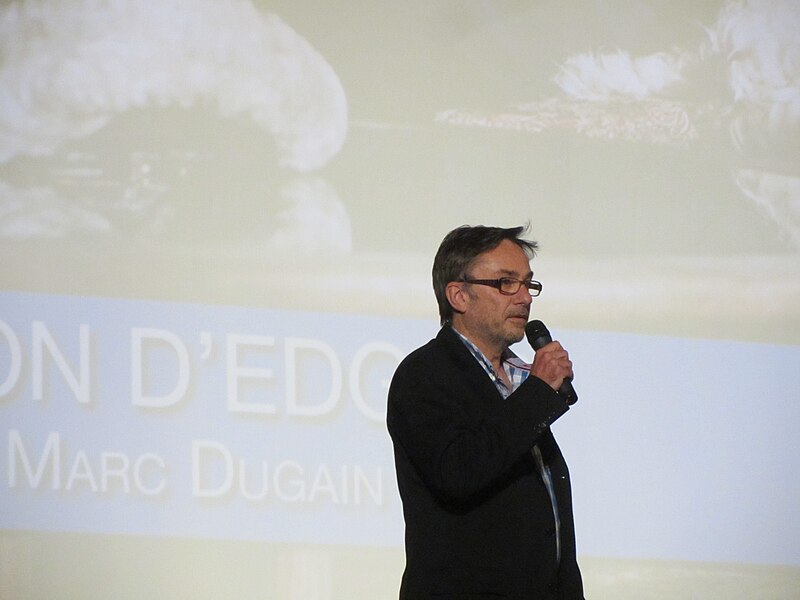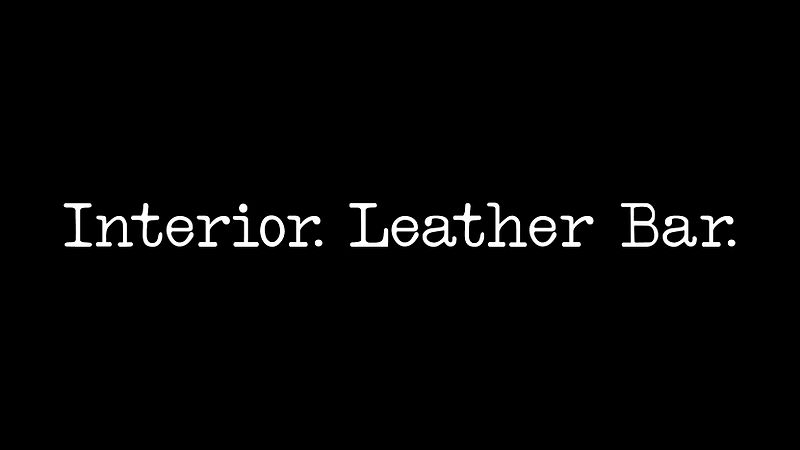Docufiction (or docu-fiction, often confused with docudrama) is the cinematographic combination of documentary and fiction.
It is a film genre which attempts to capture reality such as it is (as direct cinema or cinéma vérité) and which simultaneously introduces unreal elements or fictional situations in narrative in order to strengthen the representation of reality using some kind of artistic expression.
More precisely, it is a documentary contaminated with fictional elements, in real time, filmed when the events take place, and in which someone â€" the character â€" plays his own role in real life. A film genre in expansion, it is adopted by a number of experimental filmmakers.
The new term docufiction appeared at the beginning of the 21st century. It is now commonly used in several languages and widely accepted for classification by international film festivals. Either in cinema or television, docufiction is, anyway, a film genre in full development during the first decade of this century.
The word docufiction is also sometimes used to refer to literary journalism (creative nonfiction).
Docudrama and mockumentary

In contrast, docudrama is usually a fictional and dramatized recreation of factual events in form of a documentary, at a time subsequent to the "real" events it portrays. A docudrama is often confused with docufiction when drama is considered interchangeable with fiction (both words meaning the same). Typically however, "docudrama" refers specifically to telefilms or other television media recreations that dramatize certain events often with actors.
A mockumentary (etymology: mock documentary) is also a film or television show in which fictitious events are presented in documentary format, sometimes a recreation of factual events after they took place or a comment on current events, typically satirical, comedic or even dramatic (see genres: drama versus comedy and tragedy). Portraying events at an ulterior time and basically using fictional narrative such as docudrama, it should not be confused with docufiction as well.
Origins
.webm/624px--In_the_Land_of_the_Head_Hunters_(1914).webm.jpg)
The term involves a way of making films already practiced by such authors as Robert Flaherty, one of the fathers of documentary, and Jean Rouch, later in the 20th century.
Being both fiction and documentary, docufiction is a hybrid genre, raising ethical problems concerning truth, since reality may be manipulated and confused with fiction (see Ethics at creative non-fiction).
In the domain of visual anthropology, the innovating role of Jean Rouch allows one to consider him as the father of a subgenre called ethnofiction. This term means: ethnographic documentary film with natives who play fictional roles. Making them play a role about themselves will help portray reality, which will be reinforced with imagery. A non ethnographic documentary with fictional elements uses the same method and, for the same reasons, may be called docufiction.
First docufictions by country
.webm/300px--In_the_Land_of_the_Head_Hunters_(1914).webm.jpg)
- 1926: Moana Robert Flaherty, United States
- 1930: Maria do Mar by Leitão de Barros, Portugal
- 1932: L'or des mers by Jean Epstein, France
- 1948: La Terra Trema by Luchino Visconti, Italy
- 1952: Children of Hiroshima by Kaneto Shindo, Japan
- 1963: Pour la suite du monde (Of Whales, the Moon and Men) by Pierre Perrault and Michel Brault, Canada
- 1981: Transes (fr) by Ahmed El Maânouni, Morocco
- 1988: Mortu Nega (Death denied) by Flora Gomes, Guiné-Bissau
- 1990: Close-up by Abbas Kiarostami, Iran
- 1991: Zombie and the Ghost Train by Mika Kaurismäki, Finland (See review at NYT )
- 2002: City of God by Fernando Meirelles and Kátia Lund, Brasil
- 2005: Underexposure by Oday Rasheed, Iraq
Other notable docufictions (until 2000)
.JPG/800px-Festival_de_Deauville_-_Marc_Dugain_(2).JPG)
- 1931: Tabu by Robert Flaherty and F.W. Murnau
- 1934: Man of Aran by Robert Flaherty
- 1942: Ala-Arriba! (film) by Leitão de Barros
- 1948: Louisiana Story by Robert Flaherty
- 1956: On the Bowery by Lionel Rogosin
- 1958: Moi, un noir (Me, A Black Man) by Jean Rouch
- 1958/59 Indie Matra Bhumi (The Motherland) by Roberto Rossellini, released 2007
- 1959: Come Back, Africa by Lionel Rogosin
- 1961: La pyramide humaine (The Human Pyramid) by Jean Rouch
- 1962: Rite of Spring by Manoel de Oliveira
- 1964: Belarmino by Fernando Lopes
- 1967: David Holzman's Diary by Jim McBride
- 1973: Trevico-Torino (viaggio nel Fiat-Nam) by Ettore Scola
- 1974: Orderers, by Michel Brault
- 1976: Changing Tides, by Ricardo Costa
- 1976: People from Praia da Vieira by António Campos
- 1976: Trás-os-Montes by António Reis and Margarida Cordeiro
- 1979: Bread and Wine by Ricardo Costa
- 1982: Ana by António Reis and Margarida Cordeiro
- 1982: After the Axe, by Sturla Gunnarsson
- 1990: The Company of Strangers by Cynthia Scott
- 1991: Life, and Nothing More by Abbas Kiarostami
See more: at Docufiction films (Categories)
See also

- List of docufiction films
- Ethnofiction
- Pseudo-documentary
References

Sources and bibliography
.webm/624px--In_the_Land_of_the_Head_Hunters_(1914).webm.jpg)
- (English) Docu-fiction - Convergence and contamination between documentary representation and fictional simulation, thesis by Prof. Theo Mäusli - Science of Communication Faculty, University of Lugano (Italy) - 1999/2000
- (English) The Zulu Mask: The Role of Creative Imagination in Documentary Film â€" thesis by Clifford Derrick, Faculty of Arts, University of the Witwatersrand, Johannesburg
- (English) Table of contents for Docufictions : essays on the intersection of documentary and fictional filmmaking
- (English) Paget, Derek (1998). No Other Way to Tell It. Dramadoc/docudrama on television. Manchester University Press. ISBNÂ 978-0-7190-4533-2.Â
- (English) Rosenthal, Alan (199). Why Docudrama? : Fact-Fiction on Film and TV. Carbondale & Edwardsville: Southern Illinois Press. ISBN 978-0-8093-2186-5.Â
- (English) Lipkin, Steven N., ed. (2002). Real Emotional Logic. Film and Television Docudrama As Persuasive Practice. Carbondale: Southern Illinois Press. ISBNÂ 978-0-8093-2409-5.Â
- (English) Docudrama: the real (his)tory thesis by Çiçek Coşkun (New York University School of Education)
- (Italian) Un genere cinematografico: la docu-fiction. Il caso di 150 ore a Pavia by Laura Marchesi (thesis â€" abstract)
- (French) Le documentaire historique au péril du « docufiction â€" thesis by François Garçon (abstract in English and French)
- (French) 3 questions à …Isabelle Veyrat-Masson â€" interview (Le Journal du CNRS)
- (French) Peter Watkins, un cinéaste maudit article at Critikat
External links

- New Media Documentary â€" Paper by Gunthar Hartwig
- Issues in contemporary documentary by Jane Chapman at Google Books (pages 1 to 34)
- Shaping the Real: Directorial imagination and the visualisation of evidence in the hybrid documentary â€" Article by Janet Merewether at Scan journal
- Panel: At The Edge of Truth: Hybrid Documentaries at Vox Talk magazine
- Docufiction: Where Art and Life Merge and Divergeâ€" Article by Julie Drizin at Makers Quest 2.0
- Hybrid Documentary â€" A Potential Upcoming AV Genre â€" Article at CinePsyhcos, March 30, 2013
- Recent hybrids (fiction/nonfiction films)
- Mists â€" Movie reviews, March, 2011
- In Vanda's Room (The Decade in Review) â€" Article by Cyril Neyrat at Cinema Scope
- It’s Actual Life. No, It’s Drama. No, It’s Both â€" Article by Dennis Lim at The New York Times, August 20, 2010
- Table of contents for Docufictions : essays on the intersection of documentary and fictional filmmaking
.webm/624px--In_the_Land_of_the_Head_Hunters_(1914).webm.jpg)